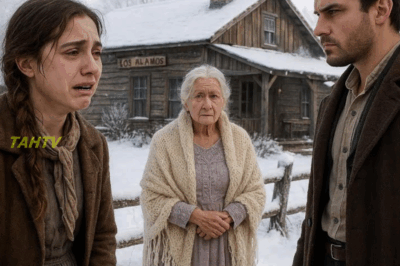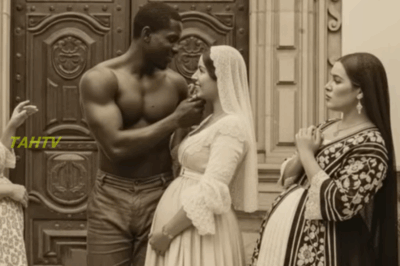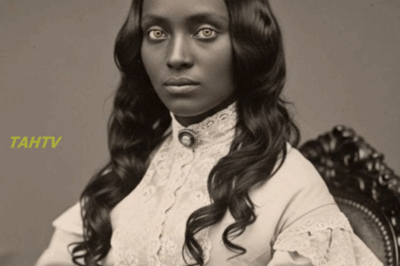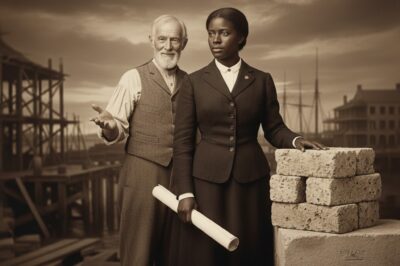
The fluorescent lights of Chicago O’Hare International Airport cast their familiar glow across the crowded terminal as travelers rushed toward their destinations. Business professionals in crisp suits merged with families hauling luggage and exhausted tourists checking departure boards. Among the crowd, James Carter strode purposefully toward his gate.
His charcoal suit and confident bearing, marking him as someone accustomed to authority. At 36, James had achieved every professional goal he had set for himself, building Carter Technologies into a major player in the software industry. His calendar was filled with board meetings, investor calls, and strategic planning sessions.
What his professional success didn’t reflect were the personal choices he had made to achieve it. Four years ago, when his fianceé Clare had told him she was pregnant, James had panicked. He was 32, focused entirely on a crucial funding round for his startup, and the thought of fatherhood felt like an obstacle to everything he was trying to build.
He had broken off their engagement, offered financial support for the pregnancy, and then immersed himself so completely in work that he could avoid thinking about what he had walked away from. Clare had tried to contact him several times in the early months, but James had let those calls go unanswered, telling himself he was making the practical choice.
Now, rushing through the airport toward a business meeting in San Francisco, James nearly collided with a young woman hurting two small girls through the terminal. He stepped aside with a muttered apology, then froze as recognition struck like lightning. Clare stood before him holding the hands of two blonde girls who couldn’t have been more than four years old.
She wore a simple beige dress and brown messenger bag, her hair in the same side braid she had always favored. The twins both wore pink backpacks and matching shirts, their pigtails bouncing as they looked curiously at the crowds around them. “James,” Clare said, her voice carrying surprise, but not the anger he might have expected.
Clare, I didn’t know you were, he gestured vaguely at the terminal, unable to finish the sentence as his mind raced to process what he was seeing. Two children, twins. The math was unavoidable. These are my daughters, Clare said, her voice carrying quiet pride. Emma and Lily. Girls, can you say hello to Mr. Carter? The twins chorused shy hellos, clearly more interested in the planes visible through the terminal windows than in adult conversations.
James felt like he had been punched in the stomach. When Clare had told him she was pregnant, he had assumed she meant one child. The reality that she had been carrying twins, that he had two daughters he had never met, hit him with devastating force. “Twins?” he managed to say. “I didn’t know. You didn’t ask,” Clare replied simply.
“When I called to tell you it was twins, you didn’t answer. I left messages, but you never responded. The accusation was delivered without anger. Just a statement of fact, which somehow made it cut deeper.” James looked at the two little girls who shared his features mixed with Claire’s. Emma had his eyes. Lily had his chin.
They were his daughters, and they were complete strangers to him. Clare, I need to talk to you, please. Can we sit down somewhere? Clare glanced at her watch, then at the girls. We have an hour before our flight boards. Girls, shall we get some ice cream while we wait? They found a quiet spot near a cafe, and Clare got the twins settled with ice cream at a nearby table where she could watch them while talking to James.
I don’t know what to say, James began, watching his daughters laughing together over their treat. When you told me you were pregnant, I was focused entirely on my company. I thought I was making the practical choice by stepping back. You were focused on your comfort. Clare corrected gently but firmly.
Having a child wasn’t practical for your timeline, so you walked away. But James, I didn’t have that option. When I found out I was carrying twins, I had to figure out how to provide for both of them alone. James felt shame wash over him as he truly confronted what his choice had meant for Clare.
“How did you manage?” “The same way millions of single mothers manage,” Clare said. “I worked during my pregnancy. I moved in with my parents after the twins were born. I took whatever job I could do from home while caring for infants. It was exhausting and terrifying and lonely, but I did it because I didn’t have a choice.” She paused, looking at her daughters with unmistakable love.
But I want you to know something important. I’m not telling you this to make you feel guilty. I’m telling you because you need to understand that walking away from responsibility doesn’t make it disappear. It just means someone else has to carry it for you. James watched Emma and Lily, seeing the evidence of four years he had missed.
“I sent child support payments,” he said, knowing even as he spoke how inadequate it sounded. You did, Clare acknowledged. And I used every penny for the girls. But James, money isn’t the same as presents. These girls don’t know you. When they ask about their father, I tell them that he had important work to do and couldn’t be with us.
I don’t badmouth you because they deserve better than growing up with that kind of negativity. The generosity of that choice, given how he had treated her, made James feel even worse. “Why are you being so kind to me?” he asked. I abandoned you when you needed me most. Clare considered the question thoughtfully. Because holding on to anger would hurt me and the girls more than it would hurt you.
I chose to focus on building a good life for my daughters rather than dwelling on your absence. But that doesn’t mean your choice was acceptable or that it didn’t have real consequences. James looked at his daughters, really seeing them for the first time. What do I do now? How do I fix this? You don’t fix it, Clare said bluntly. You can’t undo 4 years of absence.
What you can do is decide who you want to be going forward. Do you want to be an actual father, or do you want to keep sending checks and telling yourself that’s enough? The question hung in the air as James struggled with the implications. Being a real father would mean disrupting his carefully ordered life, making time for children who didn’t know him, and confronting the reality that he had made a choice he now deeply regretted.
“I want to try,” James said finally. “I want to know them if you’ll let me. I understand if you don’t trust me, and I understand if you want to protect them from someone who walked away before.” Clare studied his face, evaluating his sincerity. James, I’m not going to stand between you and your daughters if you’re genuinely committed to being in their lives.
But I need you to understand something crucial. Being a parent isn’t about grand gestures or showing up when it’s convenient. It’s about consistency, reliability, and putting their needs before your own. She gestured toward Emma and Lily. Those girls deserve a father who will show up for school plays and birthday parties and Tuesday night dinners.
If you can’t commit to that kind of regular presence, then it’s kinder to stay out of their lives than to drift in and out based on your schedule. James felt the weight of accountability settling on him. This wasn’t a business problem he could solve with strategic planning and resources. This was about showing up as a human being and father in ways that he had never been asked to do before. I understand, he said.
I know I have no right to ask for your trust, but I’d like the chance to earn it. Would you be willing to let me start building a relationship with them? Clare pulled out her phone. I’m going to give you my number again. If you’re serious about this, you’ll use it to arrange regular video calls so the girls can start getting to know you.
Eventually, we can discuss in-person visits. But this needs to be gradual and consistent, not intense and sporadic. Over the following year, James did something that surprised even himself. He showed up. He rearranged his business travel to accommodate weekly video calls with Emma and Lily. He learned their favorite colors, their personalities, and the small details that made each of them unique individuals.
He flew to Clare’s city once a month for supervised visits, gradually building trust and familiarity. He attended their fifth birthday party and helped them learn to ride bicycles. He read bedtime stories over video chat and sent cards for every minor milestone. Most importantly, he began to understand that being a father wasn’t about making up for lost time with expensive gifts or impressive gestures.
It was about showing up consistently, listening to their stories about preschool, and demonstrating through steady presence that they could count on him. The transformation wasn’t easy. James had to turn down business opportunities that would have required extended travel. He had to learn patience with four-year-old attention spans and energy levels.
He had to confront the reality that his professional success meant nothing to children who just wanted someone to play with them. Clare watched this evolution with cautious hope. She maintained clear boundaries, never pretending that James’ efforts erased his initial abandonment, but she also acknowledged his genuine commitment to changing.
Two years after their airport encounter, James sat with Emma and Lily at a park near Clare’s house, pushing them on swings and catching them at the bottom of slides. Clare watched from a nearby bench, her expression thoughtful. “You’ve surprised me,” she said when James sat down beside her while the girls played in a sandbox.
“I didn’t think you had this in you.” “I didn’t either,” James admitted. Building a company required qualities I understood. Strategic thinking, determination, riskmanagement. But being a father required things I had never developed. Patience, emotional availability, and the willingness to put someone else’s needs consistently before my own.
He watched his daughters building sand castles. I can’t undo the fact that I missed their first four years. I can’t erase the harm I caused you by walking away. But I’m trying to be someone they can count on from here forward. Clare nodded slowly. That’s all any of us can do. Make better choices going forward.
The girls are starting to trust you. And that matters. The millionaire CEO who had walked away from his pregnant fiance had learned that the most important measure of success wasn’t net worth or professional achievements. But whether you showed up for the people who needed you, the airport encounter that had shocked him into awareness had become the turning point that taught him what responsibility actually meant.
Thank you for listening to this story about facing the consequences of our choices and learning to prioritize what truly matters. If this tale reminded you that real change requires sustained effort and that being a parent means consistent presence rather than occasional involvement, please like this video. Share it with someone who believes in accountability and growth and subscribe for more stories about second chances earned through genuine transformation.
We’d love to hear in the comments about times when facing the consequences of your choices led to meaningful personal growth or when someone proved they could change through years of consistent action. Remember, we can’t undo our past mistakes, but we can choose to be better going forward.
News
Un Ranchero Contrató a una Vagabunda Para Cuidar a Su Abuela… y Terminó Casándose con Ella
Una joven cubierta de polvo y cansancio aceptó cuidar a una anciana sin pedir dinero. “Solo quiero un techo donde…
Esclavo Embarazó a Marquesa y sus 3 Hijas | Escándalo Lima 1803 😱
En el año 1803 en el corazón de Lima, la ciudad más importante de toda la América española, sucedió algo…
“Estoy perdida, señor…” — pero el hacendado dijo: “No más… desde hoy vienes conmigo!”
Un saludo muy cálido a todos ustedes, querida audiencia, que nos acompañan una vez más en Crónicas del Corazón. Gracias…
La Monja que AZOTÓ a una esclava embarazada… y el niño nació con su mismo rostro, Cuzco 1749
Dicen que en el convento de Santa Catalina las campanas sonaban solas cuando caía la lluvia. Algunos lo tomaban por…
The Bizarre Mystery of the Most Beautiful Slave in New Orleans History
The Pearl of New Orleans: An American Mystery In the autumn of 1837, the St. Louis Hotel in New Orleans…
El año era 1878 en la ciudad costera de Nueva Orleans, trece años después del fin oficial de la guerra, pero para Elara, el fin de la esclavitud era un concepto tan frágil como el yeso
El año era 1878 en la ciudad costera de Nueva Orleans, trece años después del fin oficial de la guerra,…
End of content
No more pages to load












